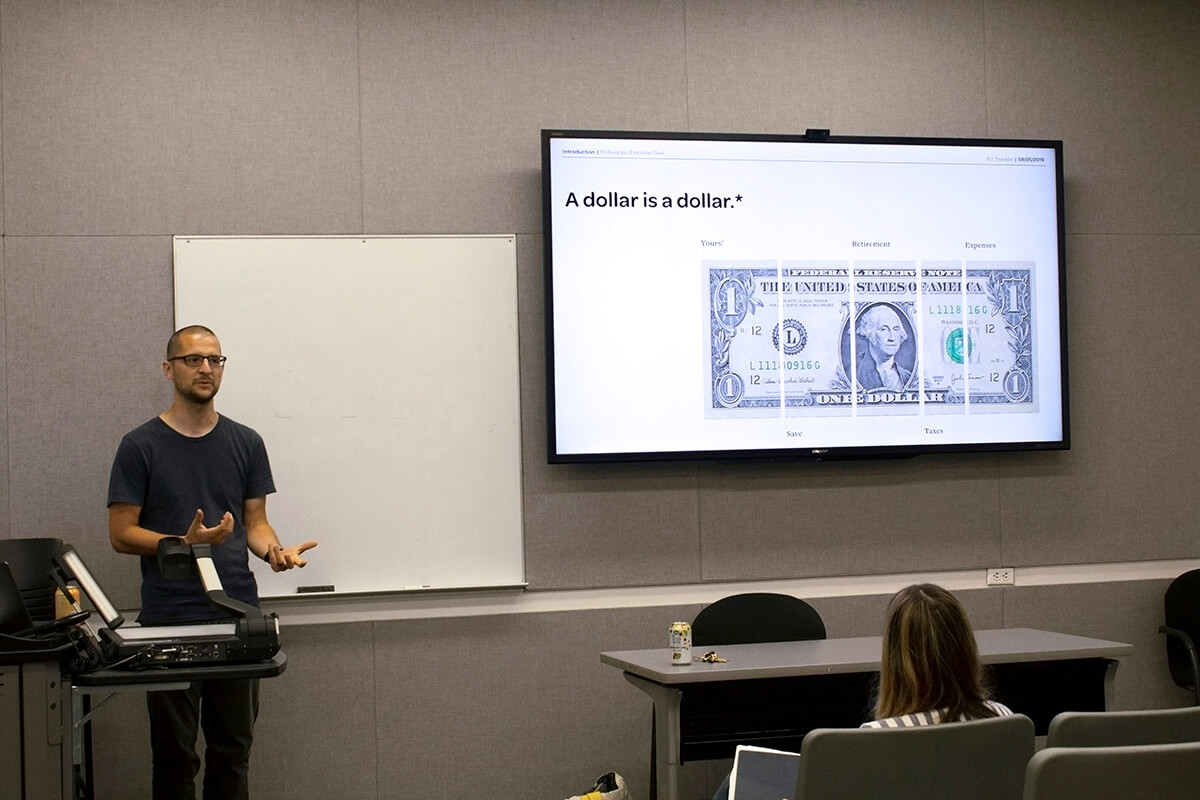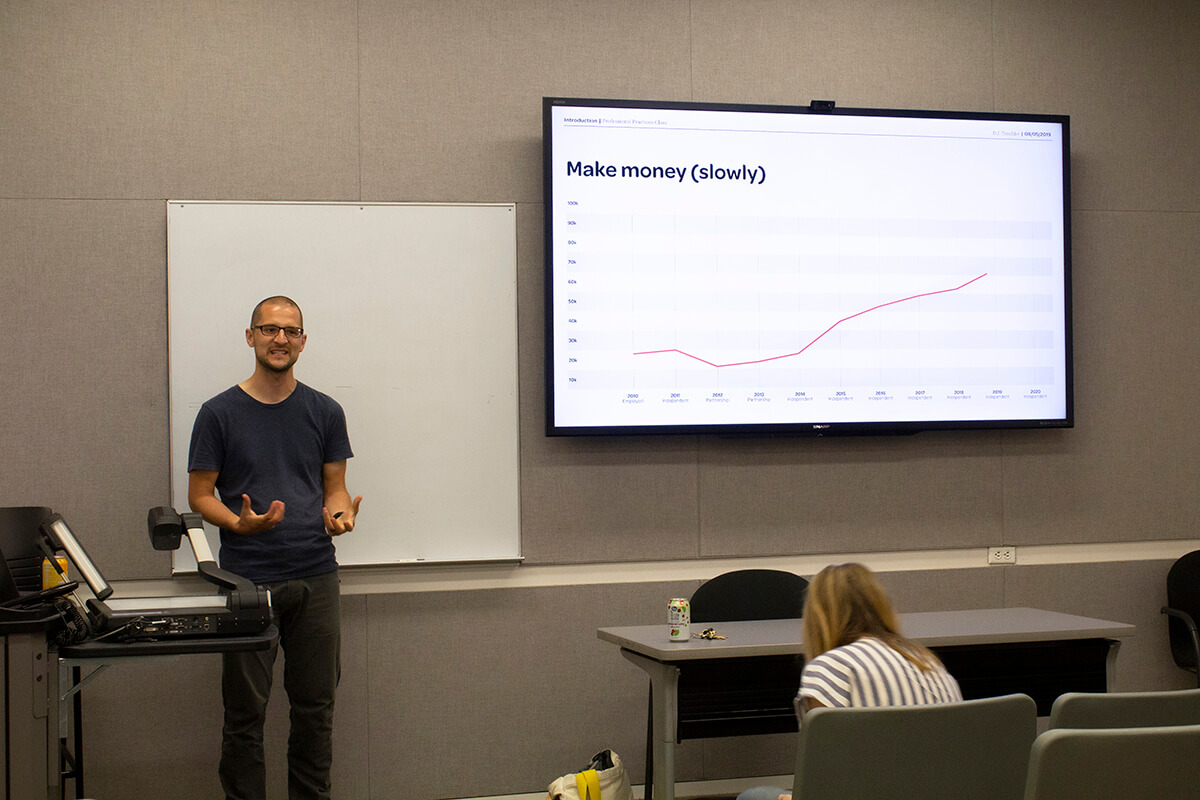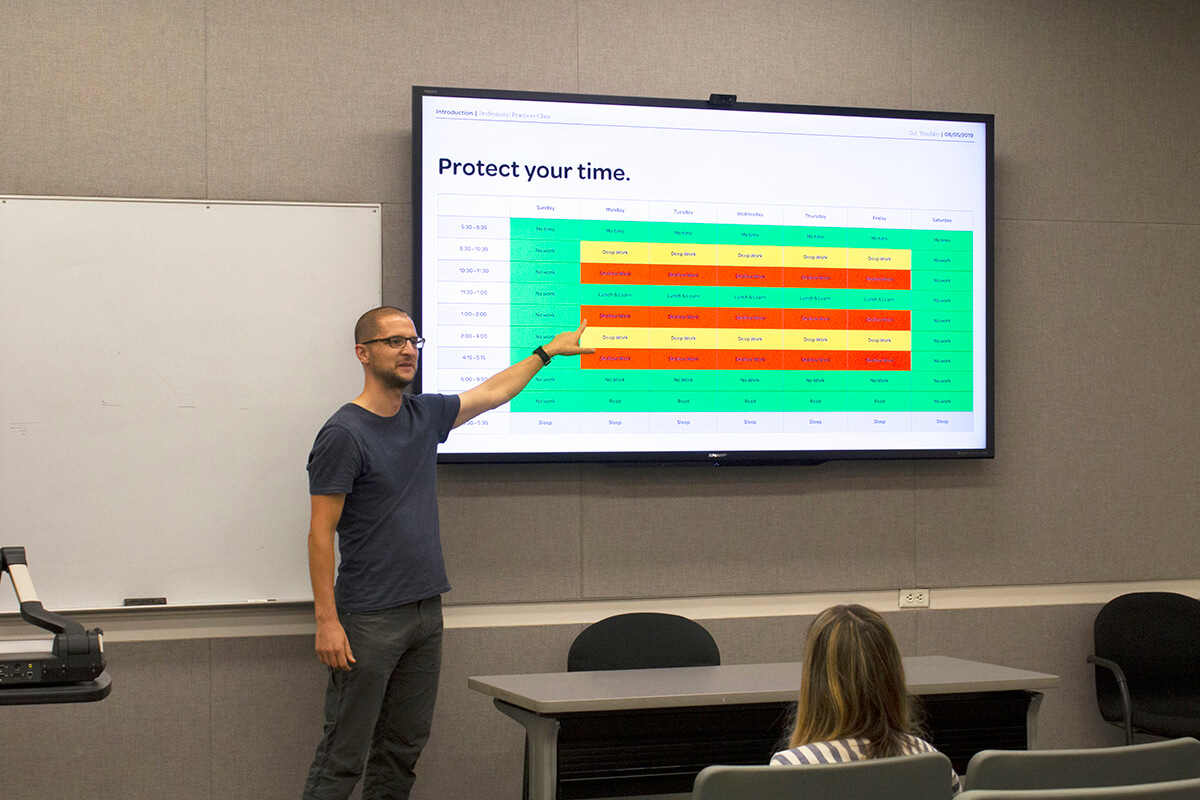Three Things I Did Not Learn in Design School
I love talking about what happens behind the scenes, the areas that no one else talks about, especially when it comes to design. It's easy for the visible by-products of the design process to steal the limelight. However, there's a ton of creativity hidden behind each successful project, or flourishing design business for that matter.
This month, Katie Parker, a fellow DAAP professor, asked me to share with her Professional Practices class what it's like running an independent design business. I took the opportunity to share the practical, non-sexy, advice I wish someone gave me before I started my business.
Here are a few highlights:
A Dollar Isn't A Dollar
I remember making $30,000 (in revenue) my first year as an independent designer and thinking that was big money. The year prior, I made less as an employed junior designer. However, the year prior, I didn't have to pay for health care, think about taxes, save for a computer or software, or consider other added benefits from my employer. Nowadays, I automatically divide the dollars I make into several buckets. Retirement (SEP), taxes (20% of my credits minus my debits), continuing education (books, classes, and conferences), savings (technology), and what I take home (income). When I began to break down a dollar like this, it made me realize the need to charge more for projects (and not be so excited for $30,000 a year).
Make Money Slowly
I don't remember where it was, but I once read about making money slowly instead of fast. That's been my goal ever since. I try to make a little more than I did the year before, adding incrementally to my income each year. I haven't made a ton, but I've made enough, and enough can be a feast.
It certainly helps to have a spouse who also has an income (steady at that). I had some tough years (financially) before marriage. My revenue has increased the most in my marriage. I heard Christoph Niemann once say that creatives don't do so well in scarcity. That we are better off with extra cash on hand in case everything falls apart (or something like that). I think that having a safety net (my wife’s income) has played a role in my business’s growth. I also began building an emergency fund. Several years later, I now have about six months of money saved for my business. It's there for when I have a tough month (or want to turn down a project I don't want to work on). The main point is, give your self just enough safety (financially) so that you can take risks (creatively).
Side Note One: If I were to start over again, I’d wait until I had the emergency fund built up (6 months for both your business and personal costs). If you want to go independent, start saving now.
Side Note Two: A few years ago I started working as an adjunct professor at University of Cincinnati, DAAP. I can only handle one class per semester while balancing work/life, but the extra “steady” income has been hugely helpful. That’s not included on the slide in the image above.
Protect Your Time
I haven't read Deep Work by Cal Newport yet, but I have listened and read a ton of interviews with him talking about the concept. Based on my understanding of the idea, I've started to block my day for deep work and shallow work. Writing this post falls under deep work because I need to be distraction-free while writing. Cranking out design iterations is also deep work. Writing an e-mail, on the other hand, falls under shallow work. If I can block my calendar for deep work and only work on deep work at that time, I get 4 hours of work done in 2 hours.
Additionally, scheduling in blocks allows me to protect my schedule from being filled with work. I don't want to work all of the time. When I do work, I want it to be the best work it can possibly be for client's and my purposes. Likewise, I want to work in a way that enables me to live vs. live in a way that forces me to work every hour of the day, and every day of the week.
I hope you find these three things helpful. I'm experimenting with them every day, meaning I haven't perfected them. I'd love to exchange notes about what goes on behind your creative process. Send me an e-mail if you have thoughts or ideas that you'd like to share.


